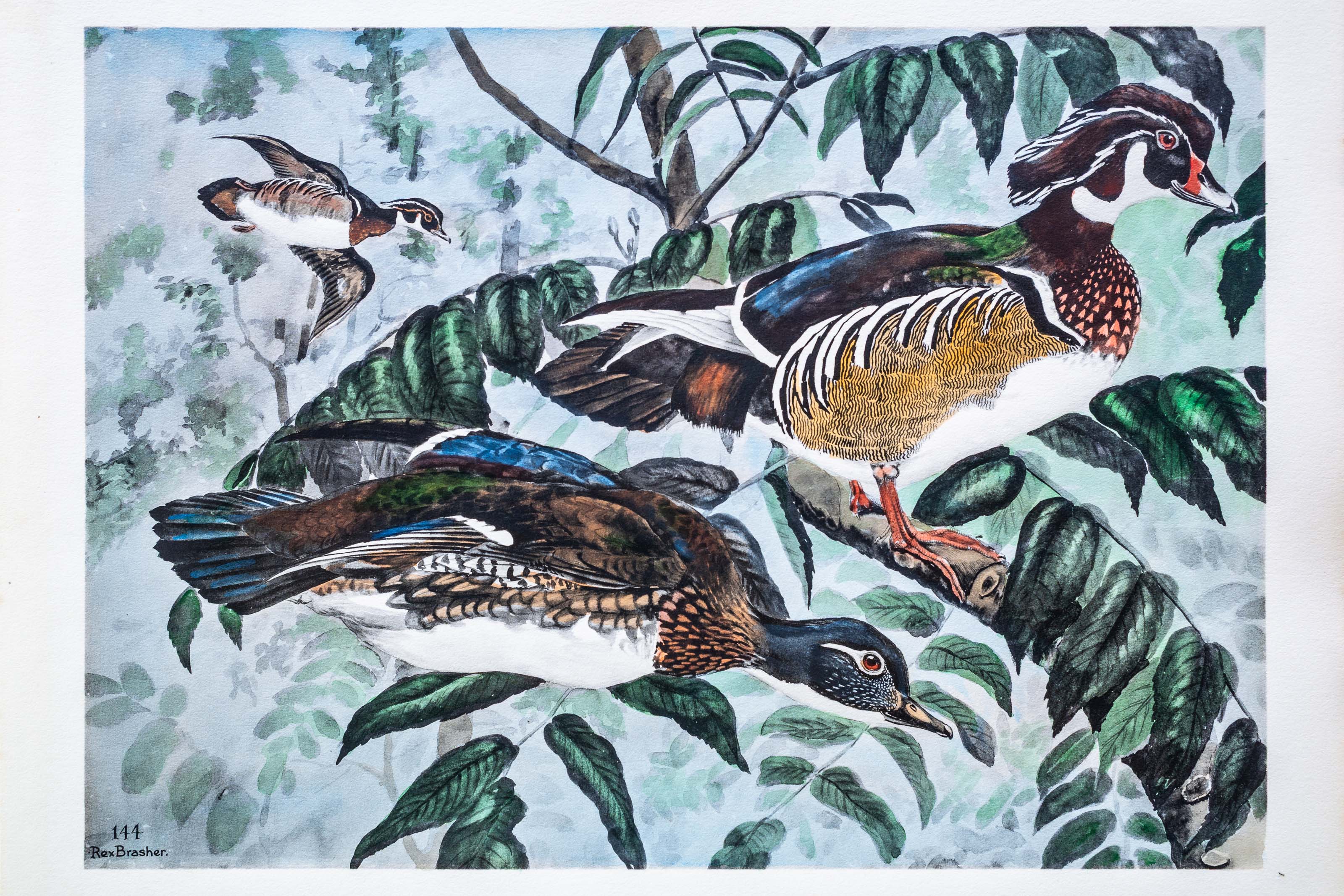
Near a small lake north of Mineola, Long Island, I found a WOOD DUCK'S nest in April, 1890. From a blind I watched family affairs and about ten o'clock on May 13th, the parents held a conference on the pond. A querulous clamor issued from the hollow tree — plaintive food cries. The adults decided their discussion and flew to the nest, mother to the entrance, father to a nearby limb.
Mrs. Wood Duck was a decisive individual: without hesitation she dove into the entry and in a few seconds appeared with a fluffy ball of down in her bill. A quick flip and down the youngster tumbled, recovered its feet and scuttled for the water! — Almost as fast as I could count, the yellow-brown atoms erupted from the orifice. — Eleven! All knew just where they wanted to go and not a single one made a mistake in the course. They couldn't see the pond but knew the direction. The parents joined the milling, cheeping bunch of animated puff balls, looked them over carefully, then the drake swam a short distance, stood up, waved his wings violently over what he undoubtedly considered his crowning achievement!
Just why this male, contrary to usual custom of his sex and kind, remained to watch the youngsters get their start in life, I cannot say but suppose he was an individual with personality and with strong paternal instincts. Subsequent observation proved the case exceptional for I seldom saw a male in the nest vicinity, and never again did I see a mother carry her young in her bill. Others have seen the young carried and the facts seem to be that if the nest is near water, young do their own scrambling; if the home is some distance from that element, the mother helps in transportation and carries most of the burden of family life.
Let it be graven to our credit that these exquisite avian jewels have been given protection which insures their hold on the razor edge of life. — Propagation and closed seasons in many states have resulted in increased numbers.
Behind an April mist I reached the old "June Bridge" unseen. This is not a travelers' bridge — merely a few chestnut planks over the brook to a sand pit. The fog lessened under the sun's rays and presently a trim Duck came peeping into the outer rim of vision, then melted out of sight. He had not noticed me and I could hear his subdued clucks, then answering peeps. The mist grew thinner — there was more color this time as he flitted over the surface daintily as a dragonfly. It did not seem a swimming motion, so lightly did he pirouette as tho he were pattering on air. . . . . The mist was gone and before me twinkled a living diamond, bowing and murmuring love notes to a tiny brown lady who coyly led her gallant upstream into the morning of delight amid the maples.